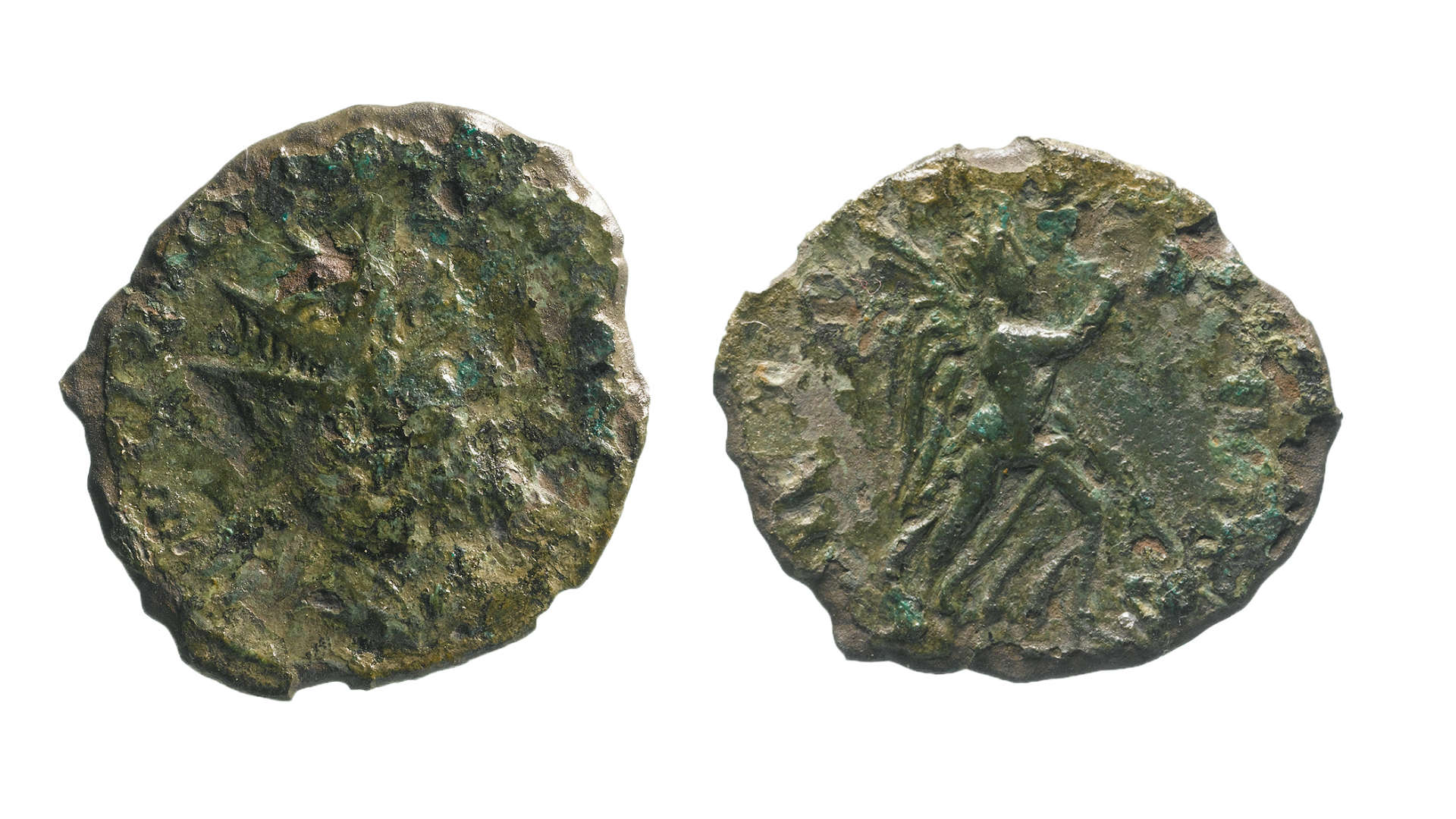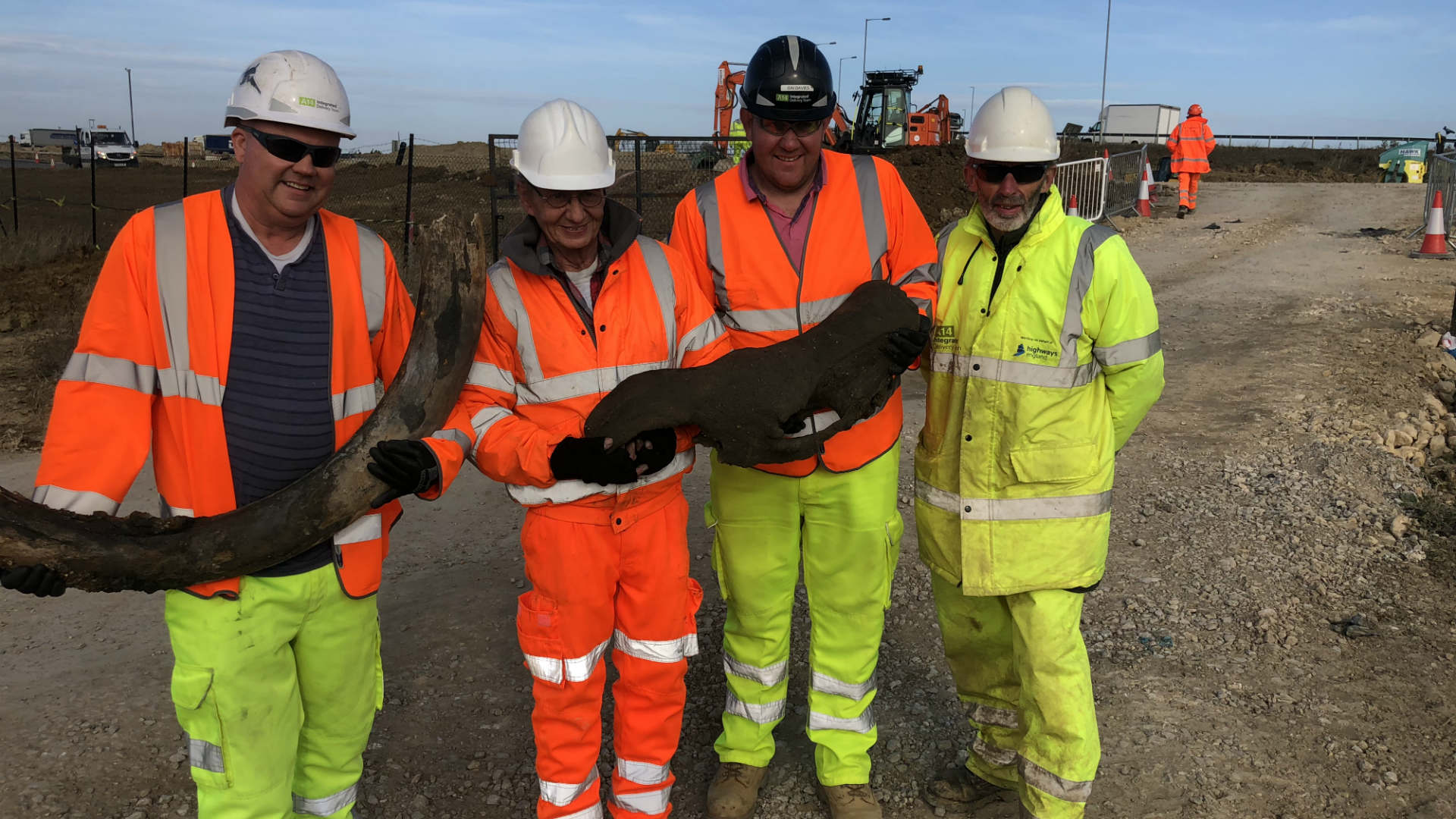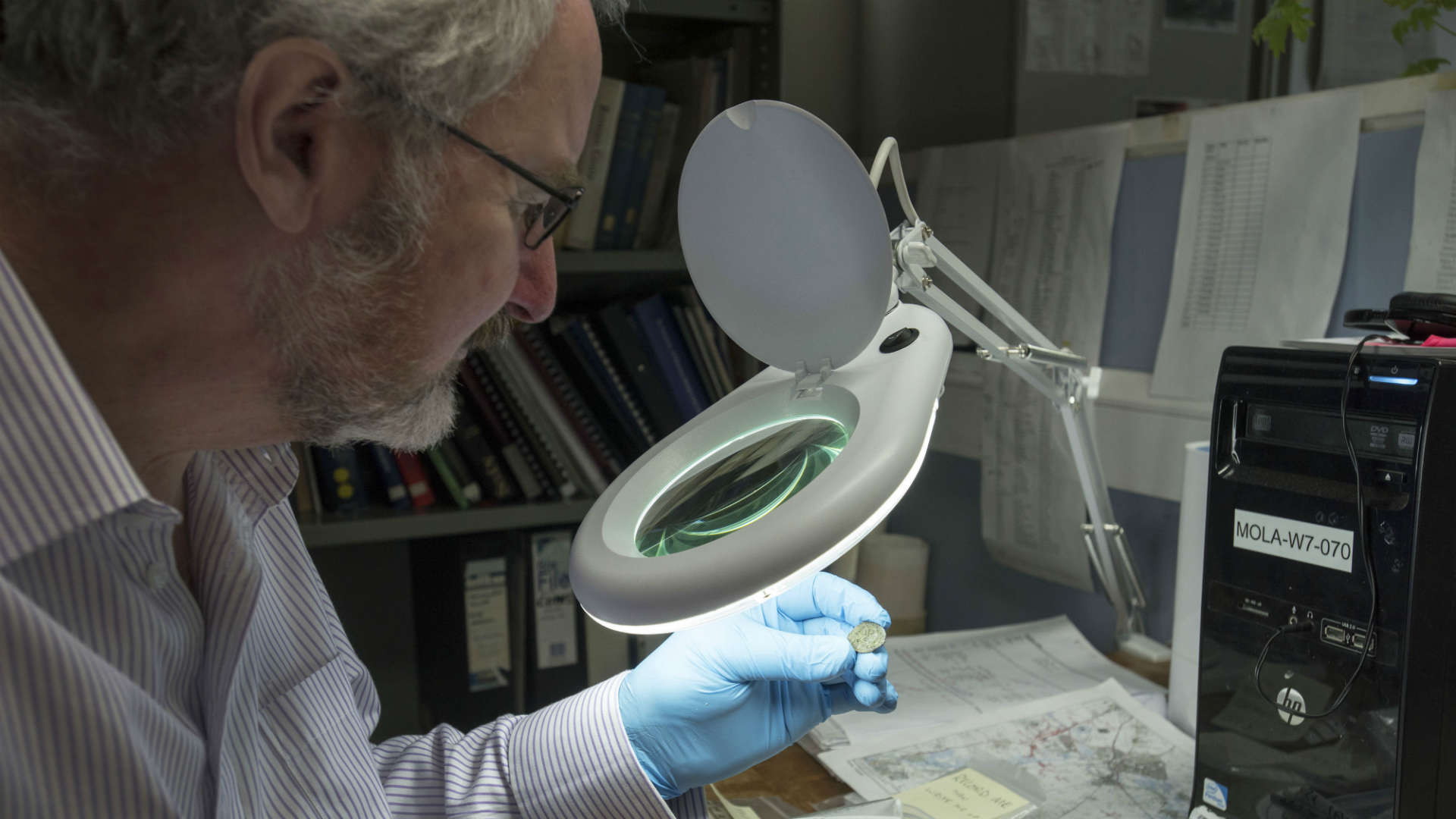
A rare Roman coin can be added to the list of amazing artefacts found by the archaeologists working alongside the A14 upgrade in Cambridgeshire.
It follows the discovery of what is believed to be evidence of the first beer brewed in the UK, along with the remains of a woolly mammoth and woolly rhino, both probably at least 100,000 years old.
Other discoveries found by the team – led by the aptly-named Dr Steve Sherlock – include prehistoric henges, Iron Age settlements, Roman pottery kilns, three Anglo-Saxon villages, and a deserted medieval village. The project also unearthed a coin dating back to 57 BC, meaning it was likely minted to help fund the resistance to Julius Caesar.
Get Tony Robinson on the blower: this is enough to fill an entire series of Time Team.

A ‘remarkable discovery’
The coin is described by Highways England as a “remarkable discovery” and depicts the Roman emperor Ulpius Cornelius Laelianus wearing a radiate crown. It’s only the second of its kind to be discovered on an archeological dig in England.
It was found in a ditch of a small Roman farmstead unearthed on the project. The head on the coin has been identified by a leading expert.
We’ve done a little, um… digging of our own, and have discovered that Laelianus was born in 269 AD and that “history has little real knowledge about the gallic emperor”.
A number of coins were issued in his name, but his reign was thought to have lasted for just a couple of months before he was executed by his own soldiers.
A ‘rich history’
Dr Sherlock said: “Discoveries of this kind are incredibly rare. This is one of many coins that we’ve found on this exciting project, but to find one, where there are only two known from excavations in this country that portray this particular emperor, really is quite significant.
“I look forward to seeing how the analysis of this find along with numerous other Roman remains that we have found on this project help us better understand our past.”

Julian Bowsher (pictured), numismatist at MOLA Headland Infrastructure, added: “Roman emperors were very keen to mint coins. Laelianus reigned for just two months, which is barely enough time to do so. However, coins were struck in Mainz, Germania.
”The fact that one of these coins ever reached the shores of Britain demonstrates remarkable efficiency, and there’s every chance that Laelianus had been killed by the time this coin arrived in Cambridgeshire.”
Work on the £1.5bn A14 improvement scheme started in November 2016 and includes a new bypass to the south of Huntingdon. The new road is expected to open to traffic by the end of 2020.
ALSO READ
2019 Range Rover gets Apple CarPlay and mild hybrid engine
Motorists can ‘fill their Jaguar Land Rover Smart Wallet as they drive’